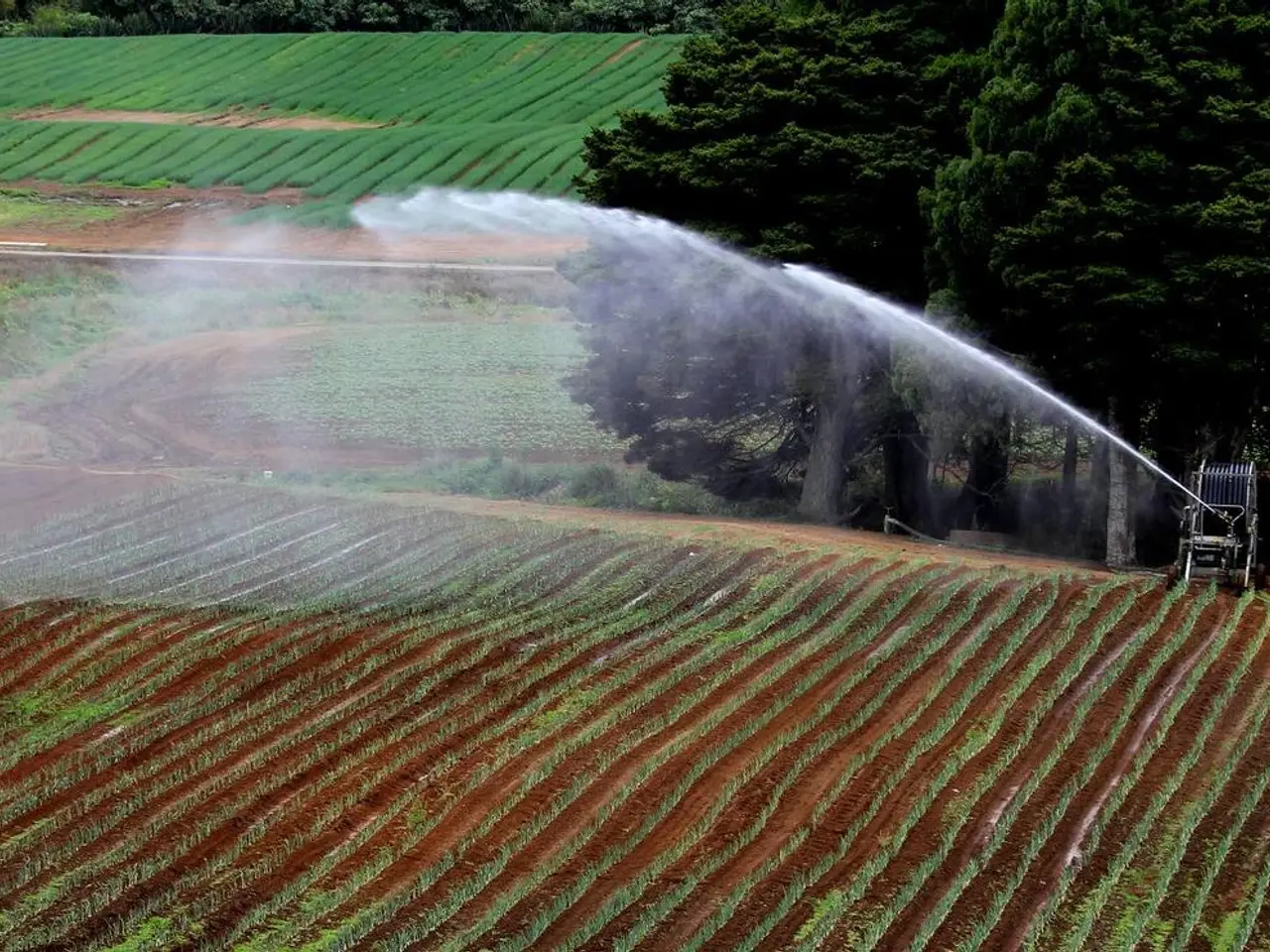"Four-acre farm produces equivalent yield to 800-1,000 acres in traditional farming settings"
The world of agriculture is evolving, and one of the most intriguing developments is the rise of vertical farming. In the picturesque county of Gloucestershire, England, a vertical farming operation is making waves by supplying major supermarkets like Ocado, Booths, and Asda with its Leaf brand of bagged leaves and herbs.
Located beside the River Severn, this farm operates as a closed-loop recirculating system, re-using water and fertiliser many times without any effluent run off. It's worth noting that this farming operation does not use pesticides or herbicides, instead relying on a few good bugs such as parasitic wasps to deal with any aphids. The plants are grown for 10 days before harvesting.
The vertical farming sector is part of a broader global indoor farming market, which is expected to reach around USD 40.8 billion in 2025, expanding at a compound annual growth rate (CAGR) of 13.6% through 2030. This growth reflects increasing interest in controlled-environment agriculture to improve food security, reduce supply chain vulnerabilities, and meet urban demand.
While there have been some high-profile bankruptcies in the vertical farming sector internationally, the market is maturing. Investment is now flowing more cautiously, focusing on operators with positive unit economics and clear profitability pathways.
In the UK, GrowUp, a vertical farming company, is making a significant impact. Starting in a greenhouse on top of a shipping container in London, they delivered salad leaves by bicycle to local restaurants. Now, they produce micro greens and herbs for the mass market from a warehouse in Beckton. Their Unbeleafable range is available in Tesco, Sainsbury's, and the Co-op, while their Fresh Leaf brand is sold in Iceland and Spar. A £100 million investment was made in GrowUp's current site, Pepperness in Kent, by Generate Capital in 2021.
Despite the promising potential of vertical farming, there is currently no Government support for the industry, despite it being cited as the future by Michael Gove during his tenure as Defra Secretary. The UK imported 47% of its vegetables and 84% of its fruit in 2021, highlighting the need for local, sustainable food production.
The Downing Street Farm to Fork summit in 2021 acknowledged vertical farming's role in a future food system. The UK's biggest vertical farming player, Fischer Farms in Norwich, Norfolk, sends out up to 1,000 tons of leafy greens and herbs daily.
As we look to the future, the potential for vertical farming in the UK is significant. Strategic partnerships between vertical farm operators and food retailers or distributors are expected to expand, facilitating market access and financial stability beyond venture capital alone. The UK government and regional policies are increasingly supportive of sustainable agriculture and food security, which are likely to benefit vertical farming initiatives.
In conclusion, vertical farming in the UK is part of a rapidly growing global sector supported by technological advancements and shifting consumer preferences. While investment is now more selective and cautious, the sector’s future is promising, supported by sustainability agendas and increasing demand for local and organic food. The UK market stands to benefit substantially from these trends, especially if government support and public-private partnerships increase to overcome startup cost barriers and scale operations effectively.
- The vertical farming sector, evolving alongside the broader global indoor farming market, is not only contributing to the improvement of food security but also influencing the lifestyle and food-and-drink choices with its locally-sourced, pesticide-free, and healthy-cooking ingredients.
- In addition to major supermarkets like Ocado, Booths, and Asda, a variety of UK retailers, such as Tesco, Sainsbury's, Co-op, Iceland, and Spar, are now offering products from vertical farms like GrowUp in their stores, contributing to the increasing demand for home-and-garden-fresh goods.
- As vertical farming gains traction in the UK and globally, there is a growing need for the government to advocate for and invest in this sector, as it aligns with the sustainability agendas and public preferences for organic and local food. This support could create opportunities for more strategic partnerships and help overcome the high startup costs that are currently a barrier for some operators.




